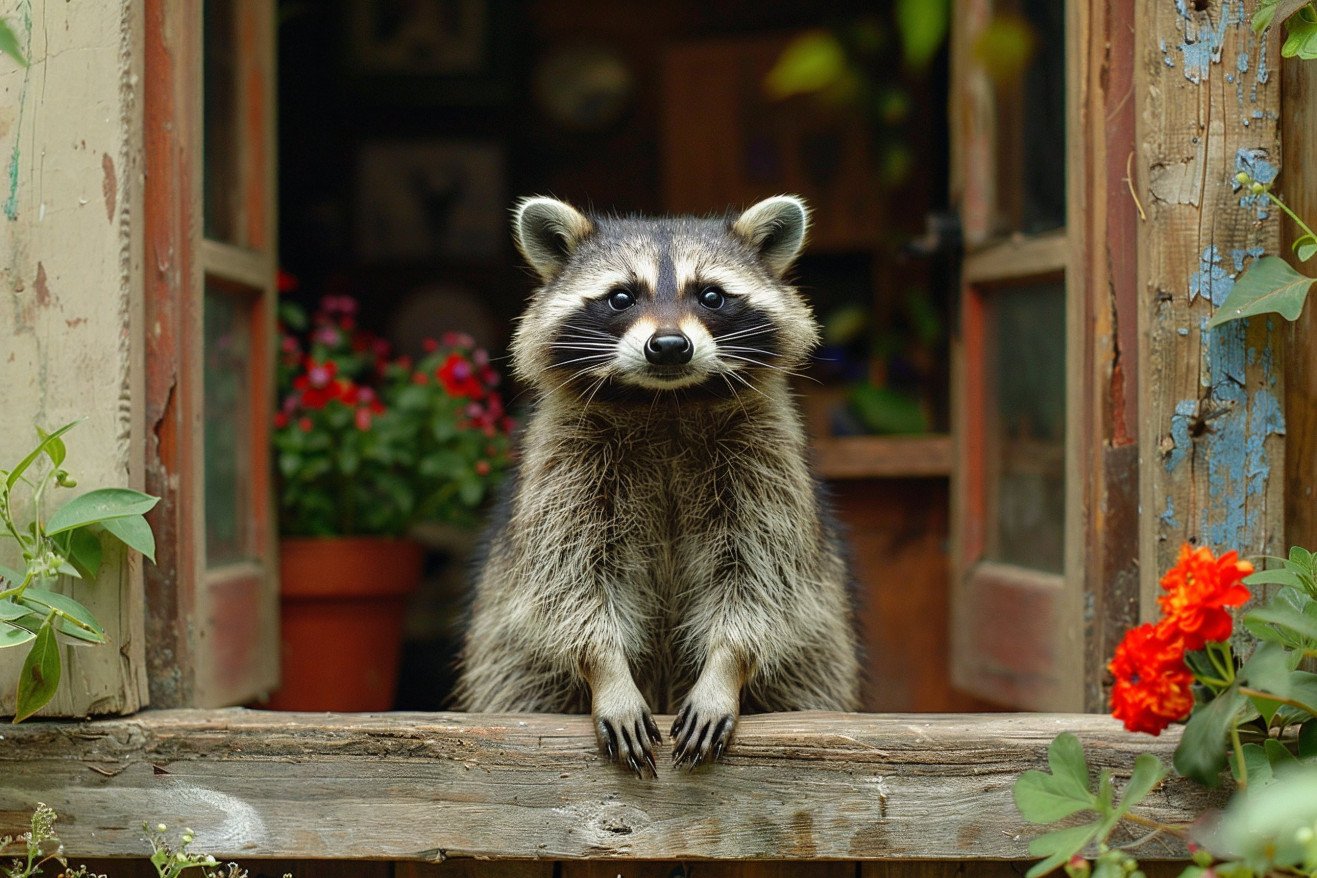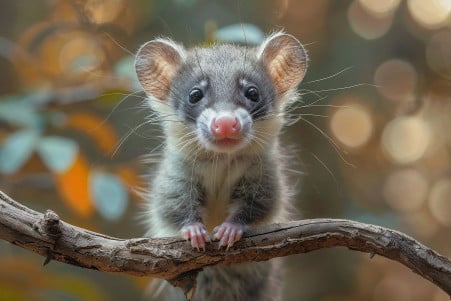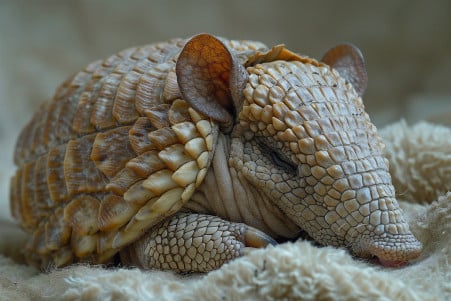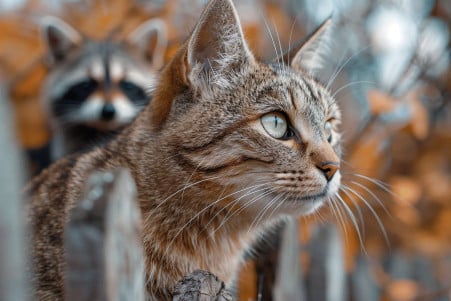Can You Have a Pet Raccoon? The Problems With Raccoon Ownership
11 June 2024 • Updated 10 June 2024

Are you considering getting a pet raccoon? Despite their adorable appearance, raccoons are not the easiest animals to keep as pets. They need a lot of space, have specific care requirements, and are illegal to own in many places without a permit, so they don't fit the typical definition of a pet.
We'll explore insights from a range of experts on raccoon care and behavior to find out why raccoons are not the best choice for a pet. From wildlife rehabilitators to veterinarians and animal behaviorists, we'll review studies that explain the challenges and concerns associated with keeping raccoons as pets. This will help you determine whether or not getting a pet raccoon is realistic based on your lifestyle and resources.
Can raccoons be pets?
Raccoons Pose Special Challenges as Pets
Raccoons are wild animals that have not been domesticated and therefore retain many of their natural instincts. Even when bred in captivity for many generations, raccoons still show signs of their wild instincts and can even become more aggressive. They are also highly intelligent and curious animals that need to be watched at all times because they are likely to get into things, using their nimble hands to open doors, unscrew lids, and more, which can make them difficult to manage in a typical home environment.
Raccoons can also be aggressive and territorial, and as they mature, they may become more wild, even if they were hand-raised from a young age. According to Pet Keen as cited by The Reflector, "Raccoons are naturally mischievous and unpredictable, and they can be aggressive. Even if you believe you have tamed a wild raccoon, that animal can turn on you at any time and deliver a wicked bite with its sharp teeth." In addition, their nocturnal habits and unpredictable behavior can lead to disruptions in the home and even pose a danger to the family.
In addition, raccoons have very specific dietary, housing, and enrichment requirements that must be met to ensure they are healthy and happy. As explained by Skyline Animal Hospital, "Raccoons also aren't content with small spaces. They would need to be able to roam around your home and have constant stimulation. In addition to needing a lot of space to climb and explore, raccoons are destructive and known to break into secured areas." These requirements and behaviors make raccoons unsuitable as pets in the average home.
Legal Landscape: Regulations and Permits for Pet Raccoons
The majority of states have outlawed the practice of keeping pet raccoons due to concerns about the spread of disease, environmental issues, and animal welfare. WebMD notes that only 16 states currently allow pet raccoons. Even in states where raccoons can be kept as pets, there are strict regulations and permits that must be adhered to, many of which require the use of USDA-licensed breeders.
The laws surrounding pet raccoons are extremely varied from state to state, with some states allowing pet raccoons with permits and others banning the practice altogether. HomeSnacks explains that pet raccoons are allowed in 19 states, including Oklahoma, Florida, and Ohio, and banned in 31 states, including California, Oregon, and New York. It is important to research and understand the laws and regulations in your state before considering a pet raccoon.
Violating state and local laws can lead to fines, the seizure of the animal, and other legal issues. Exotic Pet Wonderland points out that in states where pet raccoons are legal, it is only legal to purchase them from USDA licensed breeders. Buying a raccoon from any other source is considered wildlife trafficking, which is a federal crime.
Finding Abandoned or Injured Baby Raccoons
If you come across a baby raccoon that you think may be abandoned or injured, the first thing to do is to determine if the baby is actually abandoned or in need of help. Per the Toronto Wildlife Centre, it's important to try to reunite the baby with its mother because "raccoon mothers are excellent caregivers and will often retrieve their young."
Proper handling and temporary care techniques, including keeping the baby warm and not feeding it, are important until the baby can be taken to a wildlife rehabilitator. Per the Cummings School of Veterinary Medicine, "Trying to feed them can cause serious problems. Trying to force-feed water can accidentally end up with the liquid in the animal's lungs, causing pneumonia and death." Human intervention should be a last resort because improper care can hurt the baby raccoon and increase the risk of disease transmission.
It's best to get in touch with local wildlife authorities or rehabilitation centers for help and advice on how to care for orphaned or injured raccoon kits. The Toronto Wildlife Centre has a list of authorized wildlife rehabilitators that can ensure these vulnerable animals receive the proper care.
How to Get Rid of Raccoons
If a raccoon gets into your house, the most important thing to do is to stay calm and avoid direct confrontation or interaction with the animal. The Raccoon Attic Guide says, "Leave it alone! Any attempt to fight it might result in injury." Instead, open doors and windows to let the raccoon out and use gentle guidance methods like brooms or snare poles if necessary.
In general, hiring a professional wildlife removal service is the best and safest way to get rid of raccoons in houses. All City Animal Trapping explains, "It might be better to contact a wildlife removal service." That's because they are trained and equipped to handle these situations.
Once the raccoons have been removed, it's important to clean and seal the house to keep them from coming back. Critter Control recommends that you check the property "both internally and externally to find all of the holes the raccoons were using to get in and out, and seal them." Other actions like trimming trees, securing trash, and sealing up potential entry points can also help keep raccoons out of homes.
Conclusion: Should Raccoons Be Kept as Pets?
Raccoons are wild animals with specific needs and behaviors that make them unsuitable as typical household pets. Not only are they a rabies vector species (raccoons make up nearly 30% of all rabies cases in the U.S.), but they are also known to carry zoonotic parasites and infectious diseases that can be transmitted to humans and other animals. In addition, raccoon droppings can contain raccoon roundworm, a parasitic worm that can be harmful to humans and other animals.
While raccoons are intelligent, curious, active, and playful, they are also high-maintenance, attention-seeking, and unpredictable. Raccoons are wild animals, and their natural instincts will always override any "training" you try to impart on them. They will always be unpredictable and act in ways that are consistent with their wild nature.
Raccoons are wild animals, and their natural instincts will always override any "training" you try to impart on them. They will always be unpredictable and act in ways that are consistent with their wild nature. Raccoons are also demanding and attention-seeking, and they can become aggressive if their needs are not met. They are also known to be destructive, and they can cause extensive damage to homes and property.
Pet raccoons are only legal in 16 states, and even in those states, there are specific permits and requirements that must be met. Failure to comply with state and local laws can result in fines, confiscation of the animal, or other legal consequences.


